From the Principal’s Desk:
Reading Aloud with Preschoolers
MAKING THE MOST OUT OF OUTDOOR PLAY
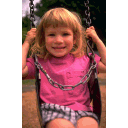
Being outside, including on playgrounds, provides opportunities for children to actively expand and create play environments. When children are happily engaged with a variety of interesting and complex materials, caregivers are able to observe and direct their attention to individuals and small groups of children. However, when there is a scarcity of play materials, “caregivers will need to be actively involved and provide play ideas.”
The materials young children find most involving are those which can be manipulated or stimulate improvisation. We know what they are: water, mud, sand, and the various related equipment; art materials; vehicles; swings; moveable climbing boards, boxes, crates, hollow blocks, and other construction materials; dress up clothes and props.
A major part of the exhilaration of outside play is the sense of freedom to be and do according to one’s own choices … to follow your own path, or a friend’s path, or know that you could if you cared to. These are known as the senses of autonomy and initiative.
Opportunities for such developmentally stimulating behaviors can be extended by empty spaces where children can create play by bringing in materials. When caregivers provide empty play areas, they extend the opportunities for children to make decisions with play materials, determining the context and the environment.
Thus, a small empty table outside could be used by one group of children as a spot
for a domino tournament, another time as the housing for a pay phone, and still another as an airport on top of a mountain. By providing a mixture of both developed play areas (where the caregiver determines the focus of the children’s play) and empty spaces and access to interesting play materials, children are able to engage in a range of developmentally important activities.
Reprinted with permission from the National Network for Child Care – NNCC. Self, F. (1996). Making the most of outdoor play. In Todd, C.M. (Ed.), *Child care center connections*, 5(3), Urbana-Champaign, IL: University of Illinois Cooperative Extension Service.
Inspirational Quotes for parents

Volunteer Spotlight:

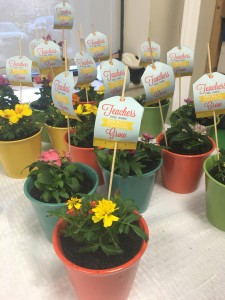
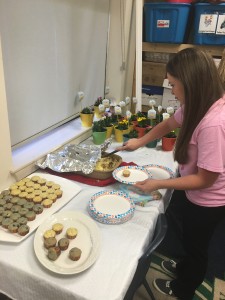
We would like to thank Ellen Hirt and Jillan Hamilton for the beautiful flowers and breakfast items!
We would also like to thank Crystal and Steve Veinot for building brand new shelves in out staff lounge!
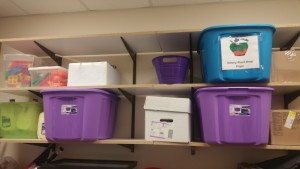
The teachers and staff loved it.
We truly appreciated it.
I want to thank each of you for the participation in our recent fundraisers! Participation in our fundraising events is optional for all families. We feel that by offering a wide range of fundraisers, families can pick the ones that work for their family!
Our Yankee Candle fundraiser was one of the most successful we have offered this year and Little Caesar’s was our most successful last year. The companies we work with are nationally recognized brands, are financially reputable and have offered a good return for our time and efforts.
With the sales from our fundraisers we are able to purchase extra supplies for the classroom. Recently we purchased new gliders for the infant room, as well as additional chairs and cots for our classrooms.
If you have ideas for any local fundraisers, please let me know and I will research the idea to see if we can offer it.
Thank you for supporting our school!
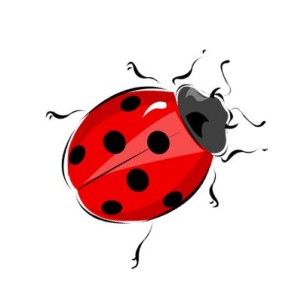 Earth Day April 22nd, 2016
Earth Day April 22nd, 2016
Infant/Toddler Sensory Garden-Sensory gardens will be open and ready for exploration of herbs, flowers, and different plants.
Beginner Sensory Gardens-Sensory gardens will be open and ready for exploration of herbs, flowers, and different plants.
Planter Boxes for the Preschool Gardens-Our Planter boxes will be opened for exploration with fruits, vegetables, herbs and of course flowers.
Ladybug Launch at 10:00 a.m-Ladybug Launch. Let’s celebrate earth day with a Ladybug Party. We will be launching over 1,500 live ladybugs back into the environment.
Parent Reminders
-
Please be sure to wash your child’s hands upon entering the classroom.
-
If your child has received any new immunizations, please make sure we have an updated record in your child’s file.
-
All outside food must be store bought.
-
Inform the front office if your emergency contact information changes.
-
Please sign your child in and out each day.
-
Label all your child’s belongings.
-
Please put appropriate foot wear on your child for active play.
ANCILLARY PROGRAMS





Monday Morning: Daisy Dance is a ballet, tap and a creative movement dance program designed to teach children a life long love of movement and provide a foundation for all dance genres. Please click here for the registration form. You can add dance at the beginning of each month.
Tuesday Morning: Preschool Music Adventure is an original approach that successfully engages active preschoolers in musical activities, in order to enhance their overall development. We are very excited about this new music program. We will have a new music session starting May 10- June 14(6 weeks). Registration forms will be available at a later date.
Wednesday Afternoon: T.O.T (Teams of Tomorrow) is an awesome training program that focuses on basketball handling and dribbling skills. The onsite classes are fun, educational and active. Please click here to access the registration form.
Thursday Morning: Soccer Shots is a popular non-competitive youth soccer program. This program teaches confidence, fun, character, teamwork, coordination and imagination. Our next session will begin March 3rd, click here for the registration forms.
Friday Morning: King Tiger Tae Kwon Do is taught according to individual needs and levels of skills. Students begin to establish, and actually achieve, personal goals. Students learn that, by setting realistic goals and applying dedication and hard work, anything is possible. They develop confidence! The virtues of Respect, Concentration, Discipline, and Motivation are the characteristics of a truly confident individual. A new session will start on March 18th, click here for the registration form.
Linking Learning with Nature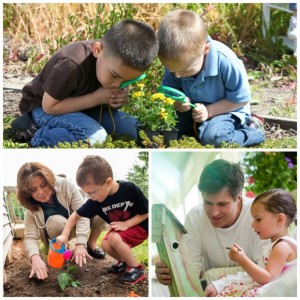
Spring is here! Flowers are blooming, days are getting longer and the weather is getting warmer. Now is a great time for children to explore these environmental changes happening in the world around them.
Not only are children curious about nature, but research shows that it has a profound influence on their problem solving skills, creativity, imagination and cognitive ability. Because of this, our teachers incorporate nature in all aspects of our Links to Learning curriculum.
Below are ways we connect learning with nature, as well as activities you can do with your child at home.
INFANTS/TODDLERS:
In the classroom: After reading a book about springtime, teachers bring children outdoors to explore and investigate objects in nature. The children have fun crumbling leaves, smelling flowers and looking at clouds.
At home: Take tummy time outdoors and allow your infant to explore different sights, sounds and textures. Encourage him to move and grab things by placing objects just beyond his reach. For toddlers, ask questions like, “Who made that chirping sound” or “Can you point to the flowers?”
Recommended reading: Wake Up! Wake Up! A Springtime Lift-the-Flap Book by Kathryn Davis, Welcome Spring by Little Scholastic
BEGINNERS (ages 2-3):
In the classroom: Our Beginners read books about seasonal changes, then bring the story to life by going outdoors to find real-world examples.
At home: Help make your child aware of the seasonal changes going on around him. Talk a walk with him and ask questions such as “Why do we see flowers growing now?” or “What do flowers need in order to grow?” Encourage him to use his creativity when answering.
Recommended reading: Over in the Meadow by Olive Wadsworth, Mouse’s First Spring by Lauren Thompson
INTERMEDIATES (ages 3-4):
In the classroom: Students plant seeds in their school garden and learn about the importance of caring for them. Through this activity, they practice math skills such as measuring, sorting, counting and making predictions.
At home: Set up a bird feeder outside a window that your child can easily see. Let him help you fill it with birdfeed. As the birds come to eat, ask your child to talk about them. “What color are they?” “Are they big or small?” “What are they doing?”
Recommended reading: Little Seed by Eric Carle, Planting a Rainbow by Lois Ehlert
PRE-K/PRE-K 2 (ages 4-5):
In the classroom: Pre-K and Pre-K 2 students explore the sounds they hear in nature while playing outdoors. They then use recycled and natural materials, such as string and pine cones, to make their own wind chime.
At home: Reuse junk mail for a fun arts and crafts activity with your child. Encourage him to look through flyers and magazines to find words and pictures that he recognizes. Then, ask him to create a collage by cutting and gluing them to a piece of paper or poster board.
Recommended reading: And Then It’s Spring by Julie Fogliano, About Springtime, Not a Box by Antoinette Portis
We provide many opportunities for our preschoolers to think creatively and imaginatively about the world around them. By setting this foundation, children build confidence in their own unique thoughts and maintain a thirst for learning as they enter elementary school and beyond.
– Lauren Starnes, PhD – Director of Early Childhood Education
This entry was posted in Mooresville. Bookmark the
permalink. Both comments and trackbacks are currently closed.

April Newsletter
From the Principal’s Desk:
Reading Aloud with Preschoolers
MAKING THE MOST OUT OF OUTDOOR PLAY
Being outside, including on playgrounds, provides opportunities for children to actively expand and create play environments. When children are happily engaged with a variety of interesting and complex materials, caregivers are able to observe and direct their attention to individuals and small groups of children. However, when there is a scarcity of play materials, “caregivers will need to be actively involved and provide play ideas.”
The materials young children find most involving are those which can be manipulated or stimulate improvisation. We know what they are: water, mud, sand, and the various related equipment; art materials; vehicles; swings; moveable climbing boards, boxes, crates, hollow blocks, and other construction materials; dress up clothes and props.
A major part of the exhilaration of outside play is the sense of freedom to be and do according to one’s own choices … to follow your own path, or a friend’s path, or know that you could if you cared to. These are known as the senses of autonomy and initiative.
Opportunities for such developmentally stimulating behaviors can be extended by empty spaces where children can create play by bringing in materials. When caregivers provide empty play areas, they extend the opportunities for children to make decisions with play materials, determining the context and the environment.
Thus, a small empty table outside could be used by one group of children as a spot
for a domino tournament, another time as the housing for a pay phone, and still another as an airport on top of a mountain. By providing a mixture of both developed play areas (where the caregiver determines the focus of the children’s play) and empty spaces and access to interesting play materials, children are able to engage in a range of developmentally important activities.
Reprinted with permission from the National Network for Child Care – NNCC. Self, F. (1996). Making the most of outdoor play. In Todd, C.M. (Ed.), *Child care center connections*, 5(3), Urbana-Champaign, IL: University of Illinois Cooperative Extension Service.
Inspirational Quotes for parents
Volunteer Spotlight:
We would like to thank Ellen Hirt and Jillan Hamilton for the beautiful flowers and breakfast items!
We would also like to thank Crystal and Steve Veinot for building brand new shelves in out staff lounge!
The teachers and staff loved it.
We truly appreciated it.
I want to thank each of you for the participation in our recent fundraisers! Participation in our fundraising events is optional for all families. We feel that by offering a wide range of fundraisers, families can pick the ones that work for their family!
Our Yankee Candle fundraiser was one of the most successful we have offered this year and Little Caesar’s was our most successful last year. The companies we work with are nationally recognized brands, are financially reputable and have offered a good return for our time and efforts.
With the sales from our fundraisers we are able to purchase extra supplies for the classroom. Recently we purchased new gliders for the infant room, as well as additional chairs and cots for our classrooms.
If you have ideas for any local fundraisers, please let me know and I will research the idea to see if we can offer it.
Thank you for supporting our school!
Infant/Toddler Sensory Garden-Sensory gardens will be open and ready for exploration of herbs, flowers, and different plants.
Beginner Sensory Gardens-Sensory gardens will be open and ready for exploration of herbs, flowers, and different plants.
Planter Boxes for the Preschool Gardens-Our Planter boxes will be opened for exploration with fruits, vegetables, herbs and of course flowers.
Ladybug Launch at 10:00 a.m-Ladybug Launch. Let’s celebrate earth day with a Ladybug Party. We will be launching over 1,500 live ladybugs back into the environment.
Parent Reminders
ANCILLARY PROGRAMS
Monday Morning: Daisy Dance is a ballet, tap and a creative movement dance program designed to teach children a life long love of movement and provide a foundation for all dance genres. Please click here for the registration form. You can add dance at the beginning of each month.
Tuesday Morning: Preschool Music Adventure is an original approach that successfully engages active preschoolers in musical activities, in order to enhance their overall development. We are very excited about this new music program. We will have a new music session starting May 10- June 14(6 weeks). Registration forms will be available at a later date.
Wednesday Afternoon: T.O.T (Teams of Tomorrow) is an awesome training program that focuses on basketball handling and dribbling skills. The onsite classes are fun, educational and active. Please click here to access the registration form.
Thursday Morning: Soccer Shots is a popular non-competitive youth soccer program. This program teaches confidence, fun, character, teamwork, coordination and imagination. Our next session will begin March 3rd, click here for the registration forms.
Friday Morning: King Tiger Tae Kwon Do is taught according to individual needs and levels of skills. Students begin to establish, and actually achieve, personal goals. Students learn that, by setting realistic goals and applying dedication and hard work, anything is possible. They develop confidence! The virtues of Respect, Concentration, Discipline, and Motivation are the characteristics of a truly confident individual. A new session will start on March 18th, click here for the registration form.
Linking Learning with Nature
Spring is here! Flowers are blooming, days are getting longer and the weather is getting warmer. Now is a great time for children to explore these environmental changes happening in the world around them.
Not only are children curious about nature, but research shows that it has a profound influence on their problem solving skills, creativity, imagination and cognitive ability. Because of this, our teachers incorporate nature in all aspects of our Links to Learning curriculum.
Below are ways we connect learning with nature, as well as activities you can do with your child at home.
INFANTS/TODDLERS:
In the classroom: After reading a book about springtime, teachers bring children outdoors to explore and investigate objects in nature. The children have fun crumbling leaves, smelling flowers and looking at clouds.
At home: Take tummy time outdoors and allow your infant to explore different sights, sounds and textures. Encourage him to move and grab things by placing objects just beyond his reach. For toddlers, ask questions like, “Who made that chirping sound” or “Can you point to the flowers?”
Recommended reading: Wake Up! Wake Up! A Springtime Lift-the-Flap Book by Kathryn Davis, Welcome Spring by Little Scholastic
BEGINNERS (ages 2-3):
In the classroom: Our Beginners read books about seasonal changes, then bring the story to life by going outdoors to find real-world examples.
At home: Help make your child aware of the seasonal changes going on around him. Talk a walk with him and ask questions such as “Why do we see flowers growing now?” or “What do flowers need in order to grow?” Encourage him to use his creativity when answering.
Recommended reading: Over in the Meadow by Olive Wadsworth, Mouse’s First Spring by Lauren Thompson
INTERMEDIATES (ages 3-4):
In the classroom: Students plant seeds in their school garden and learn about the importance of caring for them. Through this activity, they practice math skills such as measuring, sorting, counting and making predictions.
At home: Set up a bird feeder outside a window that your child can easily see. Let him help you fill it with birdfeed. As the birds come to eat, ask your child to talk about them. “What color are they?” “Are they big or small?” “What are they doing?”
Recommended reading: Little Seed by Eric Carle, Planting a Rainbow by Lois Ehlert
PRE-K/PRE-K 2 (ages 4-5):
In the classroom: Pre-K and Pre-K 2 students explore the sounds they hear in nature while playing outdoors. They then use recycled and natural materials, such as string and pine cones, to make their own wind chime.
At home: Reuse junk mail for a fun arts and crafts activity with your child. Encourage him to look through flyers and magazines to find words and pictures that he recognizes. Then, ask him to create a collage by cutting and gluing them to a piece of paper or poster board.
Recommended reading: And Then It’s Spring by Julie Fogliano, About Springtime, Not a Box by Antoinette Portis
We provide many opportunities for our preschoolers to think creatively and imaginatively about the world around them. By setting this foundation, children build confidence in their own unique thoughts and maintain a thirst for learning as they enter elementary school and beyond.
– Lauren Starnes, PhD – Director of Early Childhood Education